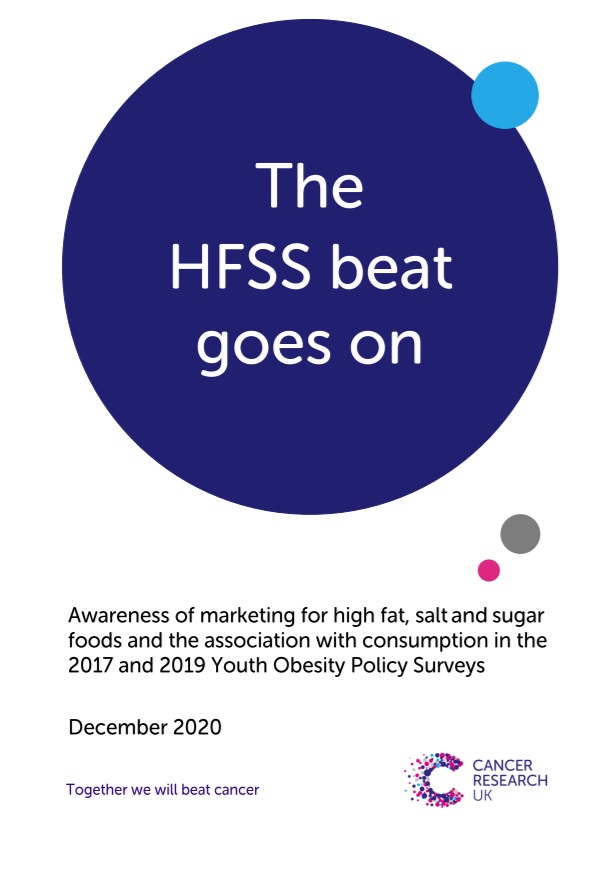
Cancer Research UK, in collaboration with ISMH’s Nathan Critchlow, have published a new report examining awareness of marketing for unhealthy food and drinks and the association with monthly consumption of food and drinks high in fat, salt and/or sugar (HFSS).
The data come from the first two waves of the Youth Obesity Policy Survey (YOPS). This study is modelled on ISMH’s long-running Youth Tobacco Policy Survey (YTPS), a repeat-cross-sectional study that has made significant contributions to the implementation and evaluation of leading tobacco control policy in the UK.
The first wave of the YOPS was conducted in 2017 and the second wave in 2019. In each wave, data came from around 3,300 11-19 year olds from across the UK, who are recruited by YouGov. Adolescents are asked a variety of questions relating to diet and obesity, including where and how often they recall seeing marketing for unhealthy foods and their HFSS consumption.
The data suggest that little has changed in the past two years. In both waves, around nine-in-ten adolescents recalled seeing at least one instance of HFSS marketing in the past month, at least half of adolescents were estimated to see 2-3 instances of HFSS marketing a day, and higher awareness of HFSS marketing was associated with increased consumption for a variety of HFSS food and drinks.
The UK Government have committed to, or are consulting on, a range of new marketing control policies for HFSS foods. These include a 9pm watershed and a ban on online advertising. This report builds on existing evidence highlighting exposure to HFSS marketing among young people, and support the swift implementation of these proposed policies.
The full report can be read here and the executive summary here.
The report should be cited as:
Newman, A., Newberry Le Vay, J., Critchlow, N., Froguel, A., & Clark, M., & Vohra, J. (2020). The HFSS beat goes on: Awareness of marketing for high fat, salt, and sugar foods and the association with consumption in the 2017 and 2019 Youth Obesity Policy Surveys. London, UK: Cancer Research UK.
